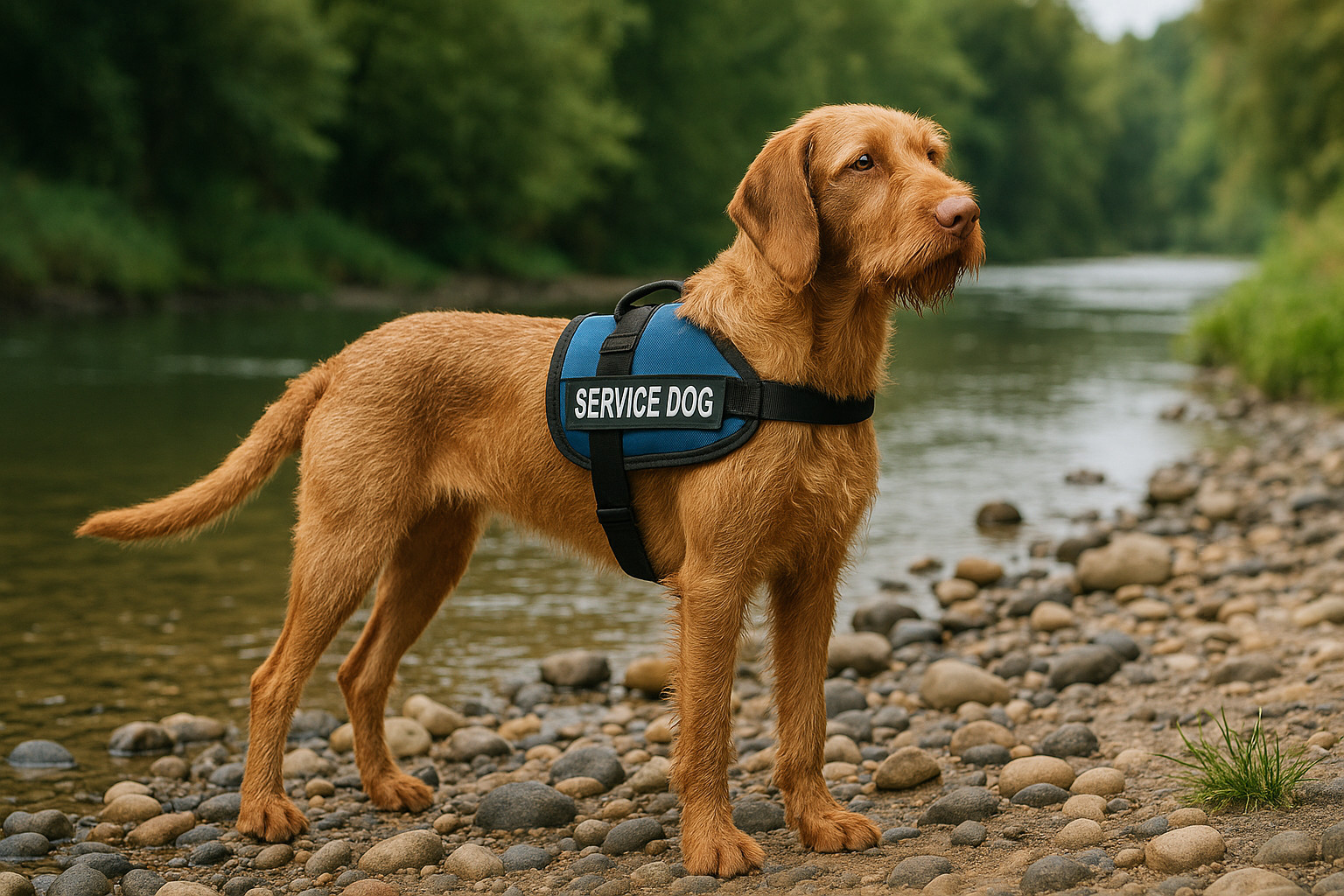Vizsla as a Service Dog

When considering a breed for service dog work, it's important to examine various factors that contribute to their overall effectiveness and suitability in such a role. The Vizsla, often referred to as the "Velcro Vizsla" due to their close bond with humans, presents a unique set of characteristics that can be favorable in a service dog context. This article explores all facets of the Vizsla as a potential service dog.
Vizsla Overview
The Vizsla is a versatile hunting dog breed originating from Hungary. They are known for their affectionate nature and energetic disposition, which can make them excellent companions. Their striking appearance and athletic build allow them to excel in various roles.
Physical Characteristics
Vizslas are medium-sized dogs, generally standing between 21 to 24 inches at the shoulder and weighing between 45 and 65 pounds. They are characterized by a lean physique, which provides both agility and endurance. Their sleek, short coats are typically a golden rust color, lending them a distinctive look.
- Size and Strength: The medium size and well-muscled build of Vizslas make them suitable for tasks that require physical support and guidance. Their strength allows them to provide physical assistance and balance, making them appropriate candidates for mobility assistance work.
- Energy Levels: Known for their high energy and stamina, Vizslas require significant daily exercise. This trait is advantageous for service work requiring active engagement, but it can be challenging if not properly managed.
Temperament and Attitude
Vizslas are renowned for their affectionate and friendly nature. They are inherently people-oriented, which is a desirable trait for service dogs that must remain attentive to their handlers.
- People Affinity: The Vizsla's deep need for human companionship can foster a strong bond with their handler, promoting reliable service and support.
- Social and Friendly: Vizslas tend to be friendly not just toward their handlers but also in social settings, which aids in their adaptability to public environments.
- Stress Response: In potentially stressful situations, such as crowded areas or with sudden loud noises, Vizslas typically maintain calmness, although adequate socialization and exposure are crucial during training.
Types of Service Work
Given their physical and mental traits, Vizslas are well-suited to particular types of service work.
- Mobility Assistance: Their size and strength are apt for tasks like pulling a wheelchair or providing balance support, given proper training.
- Psychiatric Service: Vizslas excel in detecting emotional distress due to their keen emotional awareness and close attachment to their handler. They can be trained for tasks like interrupting harmful behaviors or providing comforting pressure during panic attacks.
- Hearing Assistance: Their alertness and sharp senses make them capable candidates for alerting handlers to important sounds, from doorbells to smoke alarms.
Health Considerations
As with any breed, specific health considerations must be noted when considering a Vizsla for service work.
- Hip Dysplasia: Like many medium to large breeds, Vizslas can be prone to hip dysplasia, a condition that may affect their mobility and ability to perform physical tasks.
- Epilepsy: Vizslas are also predisposed to epilepsy, which could impact their suitability for consistent service work if not adequately controlled.
- Allergies and Skin Conditions: The breed can have allergies, potentially leading to skin issues that require veterinary attention, impacting their availability for work.
Training and Suitability
Training a Vizsla for service work requires understanding their unique blend of intelligence and independence.
- Trainability: Vizslas are intelligent and eager to please, making them relatively easy to train with positive reinforcement. However, training needs to be consistent and purposeful, focusing on reinforcing their natural desire to bond with their handler.
- Independence: While they are generally obedient, Vizslas can exhibit independent thinking. It is crucial that training addresses this to ensure reliable service behavior.
Summary of Vizsla
A Vizsla can be a successful service dog when carefully selected and trained, with a breed-specific focus to maximize their strengths.
- Key Strengths:
- Strong bond with handler and people-oriented nature
- Suitable size and strength for physical assistance
- Intelligence and trainability
- Potential Weaknesses:
- High energy requires sufficient physical and mental stimulation
- Susceptibility to certain health issues like hip dysplasia and epilepsy
- Ideal Service Roles:
- Mobility assistance
- Psychiatric service
- Hearing assistance
Understanding and leveraging the Vizsla’s natural tendencies and needs can lead to a fruitful service partnership, though it requires dedication and consistency to navigate their high energy and occasional independent nature. Their loyalty and eagerness to please can create an invaluable support relationship for those in need of service support.











